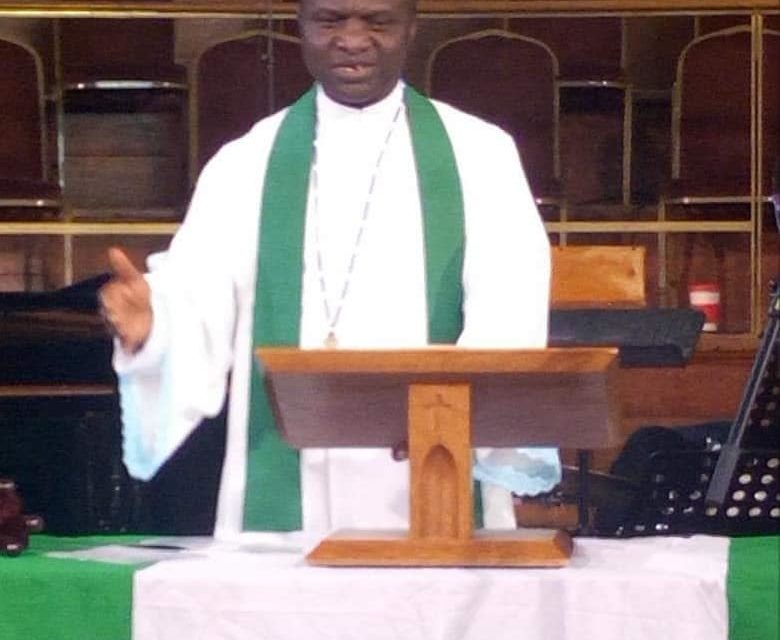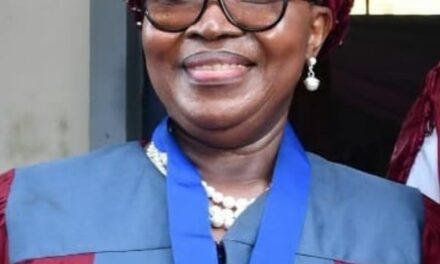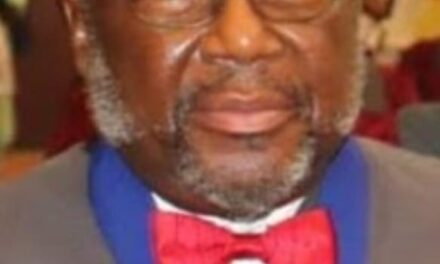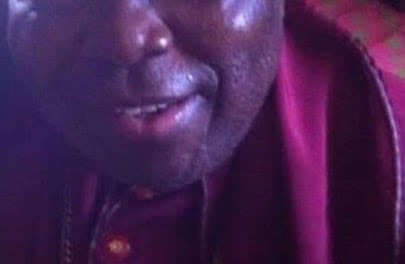The 170-year-old story of the Church in Nigeria has been told several times by different sources and from different perspectives. It is important to note the labour of the Portuguese Roman Catholic priests who, in the 15th century, accompanied traders and officials to the West African coast, including Benin. The priests, with the support of Benin king’s palace, built several churches to serve the Portuguese community and a small number of African converts. The influence of the Catholic missionaries waned and disappeared when direct Portuguese contacts were withdrawn. However, the success story of the modern Christianity actually began in the evening of September 23, 1842 with the Methodist Missionary Society, through the pioneering works of Thomas Birch Freeman, his wife and two devoted African helpers, Mr. and Mrs. William De-Graft. According to Sir Michael Familusi, a Methodist leader and an historian, “In the morning of 24th September 1842, they came ashore in schooner’s boat. They went under the thin shade of the stately palms to the lagoon which was three quarters of a mile wide … A large canoe carried them across and between two and three o’clock in the afternoon, they landed at Badagry.”
Freeman arrived Badagry during the reign of Warraru, the king of Badagry who countersigned Ferguson’s letter of appeal to Rev. Thomas Dove, a Methodist Minister in Freetown via a letter dated March 2, 1841 to send a missionary to Badagry. The first service was held under Agia tree in Badagry and from there, Christianity spread like fire and the increase in number of worshippers prompted the building of bamboo cottage, which became the first church in Nigeria.
On Monday, December 5, 1842, Freeman extended his missionary work to Abeokuta through the invitation of Alake Sodeke. The missionary journey took a whole week under the heavy imposing escort sent by Alake Sodeke. Freeman and his helpers held a service in the afternoon of Sunday, December 11, 1842 in the big courtyard of Alake, and that was the beginning of Christian worship in Abeokuta. The arrival in Badagry of a young lay missionary of the CMS, Henry Townsend, sent from Sierra Leone ‘on a visit of reconnaissance similar to that of Freeman,’ climaxed with the joint mission in Nigerian Christianity. On the eve of Christmas, 1842, the two pioneers, Freeman and Townsend, met, and also ‘spent the Christmas day in happy fellowship, holding a service of united worship … in the bamboo church.’ The seed sown 170 years ago continues to grow, with the spread and emergence of varieties of Christian denominations.
Despite the colonial leadership control, Nigerian initiative in Christian missions had been a sweet-bitter engagement, with the colonial missionaries’ break away from mission churches, and the emergence of indigenous leadership and efforts among the natives, thereby making Christianity more relevant to the people. With the emergence of independent churches in Nigeria in the late 19th century, Nigeria experienced contextualization of Christianity, including the 1930 Oke-Oye, Ilesa, revival led by Apostle Ayodele Babalola. This was followed with the rise of Aladura movement in Yorubaland and the Apostolic movement which provided the springboard for the emergence of Evangelical, Charismatic and Pentecostal movements in Nigeria.
The failure of the Scheme of Church Union in Nigeria in 1965 was not the end of cooperation between churches in Nigeria. The Church in Nigeria, despite the negative effects of the civil war, played a leading role together in promoting reconciliation among the people. Coupled with other challenges and factors, including the registration of Nigeria as a member of the Organisation of Islamic Countries by Gen. Ibrahim Babangida’s military administration, Nigerian churches officially came together under five main blocs of a national umbrella known as the Christian Association of Nigeria (CAN) in 1976. The five blocs are the Catholic Secretariat of Nigeria, The Christian Council of Nigeria, the Christian Pentecostal Fellowship of Nigeria/Pentecostal Fellowship of Nigeria, the Organisation of African Independent Churches and Tarrayar Ekelesioyoyin Kristi a Nijeria/Evangelical Church Winning All.The 170 years of the church in Nigeria has delivered a measure of spiritual, physical, educational, medical and social growth, especially the worldwide global applause of the indigenous Pentecostal and charismatic revival and renewal movements and missionary initiatives.
Nigeria, in the criteria of the African Development Bank with the population of 156.3 million and forecast to be the third most populous country in the world after India and China, is Africa’s most populous nation. Nigeria is not just the most populous nation in Africa, but also becoming the leading mission-sending country in Africa. Prof Matthew Ojo rightly described ongoing unprecedented influence of the 170 years of the Church in Nigeria and Africa. According to him, Nigeria ‘has, since the late 1970s, been playing major leading roles in promoting a significant African initiative in Christian missions … with a missionary force of over 5,300 of which about 500 are spread over four continents.’
The strengths and spiritual passions of the Nigerian Protestant missions and churches are not only becoming ‘a way of furthering the contextualization of African Christianity,’ but also to stand on uncompromising biblical injunctions and experiences. Some of these stands challenged the definition of world Christianity in the Western perspectives. Among such stands was the opposition by African Anglican bishops led by the former Nigerian Anglican Primate, Archbishop Peter Akinola, against same sex marriages in the Western Church. The opposition projects the African Christian perspective whose new Christian ‘experiences are bringing renewal to the faith.’ This is more than what the Western world are calling ‘reversed mission,’ but rather, it is the ‘renewed mission.’
Beyond the present and speaking prophetically, I agree with Rev. Canon Bayo Famonure, that the next few years for the Church in Nigeria will be of great challenges in many areas. Every indication in the life of the Church, taken together with the spiritual and moral signs of Nigeria, is that there is an urgent need to pause and think, examine ourselves and, under God, set things to rights where they have gone wrong or where they are going wrong. Many of the Christian foundations are being eroded from the family levels, to schools, offices and even churches.
It is argued that American style of ministry has invaded the Nigerian environment; so much so that even mission and church leaders are forgetting that missions and sacrifice are inseparable and must go together. The church leadership seems to be forgetting about cross-bearing, hence we want to eat our cake and have it. In Christian mission and history, spiritual revival always has impact on social structure. Revival, therefore, was the main reason why radical social change took place without bloody revolution.
A good example of such was the 18th century revival under John Wesley and George Whitefield in Britain. Beyond the present 170 years celebration, we need a new awakening of the Christian social conscience and not just motivational therapies evidenced in the theme among the topics of congresses, conferences, and assemblies, seminars and consultations by a wide range of churches and denominations in Nigeria.
Beyond the present 170 years of church in Nigeria, in such a time as this, the greatest church challenges we have to face are closely related to the call to evangelise without ignoring the need for socio-political involvement. Out of many of the challenges, let us look at three that place the Church at the crossroads: Radical discipleship is a major challenge in the face of our population explosion. Just like in Latin America, many of our proliferating Nigerian mega churches do not preach the gospel of Jesus Christ, but the ‘gospel of material prosperity,’ converting industrial warehouses to churches. Our mega churches are not providing enough bases for authentic social reform; instead, we are promoting a parallel danger where leaders are idolised by mass cult. The orthodoxy of our creed is no guarantee and speaks less of our own faithfulness to the gospel in either our life or our service.
It is not enough to establish private universities that ordinary church members cannot afford to send their wards; hence corruption is thriving as everyone is running the rat race to make up; thereby spending more than what they earn. The problem is that these mega churches run the risk of institutionalising a Protestant popular religion that has little to do with Christian faith rooted in biblical teaching. The kind of church growth in Nigeria challenges us to examine to what extent we are proclaiming and living out the good news of the kingdom of God and His justice, and not a message that reflects the values of the consumer society.
It can well be said that we are lacking relevance to public life. Just as Cavalcanti said, ‘if the rapture occurred today, it would take a whole week for people in that country (Nigeria) to realise that … Christians are absent.’ Nigerian Christianity is in deep crises of values and ethics, enough of mere converts but radical disciples willing to live out the gospel as public truth. Beyond the present opens us to another challenge of globalisation, immigration, and poverty. The emergence of Boko Haram is a signal to the increasing wave of global insecurity and terrorism. There is acute poverty in Nigeria caused by the present day global economic system controlled by a corrupt transnational class, coupled with the greed and the misuse of power by the wealthy and political/spiritual/business elites.
Nigeria is assuming the most dangerous dimensions of capitalism by deliberately erecting inequality and institutionalising poverty in the society. Poverty in Nigeria, which goes beyond scavenging from dust bins, is not the result of lack of natural resources, but the result of corruption, greed, bad and visionless ‘siddon chop’ leadership. There is high rural-urban dichotomy resulting in disadvantaged rural communities, with the immediate effect of population explosion, congestion in churches/camps and household.
In Africa, population in cities is projected to increase from 1.9 billion in 2000 to 3.9 billion in 2030. The suffering and hopelessness among millions of Nigeria is the manifestation and recognition of leadership absence. We have leadership vacuum that can place the need and well-being of the depressed millions of people above own economic interest and political/spiritual ambitions. The Population Reference Bureau shows that life expectancy among Nigerians dropped from an average of 52 to 44 years between 2002 and 2005. To overcome poverty and short life expectancy, we need incarnational mission inspired by Jesus’ compassion that will challenge Christians to use whatever power they have not to oppress but to serve.
The menace of oil spill caused by foreign multinational oil companies in the eastern part of Nigeria, and its adverse effects on the people and their livelihood, call for church action. Beyond the 170 years of the church in Nigeria is the call to be faithful to the Gospel rather than promoting ‘culture Christianity’ that easily adjusts to the mood of the day. Enough of message of conformism, gospel without teeth, which is easily tolerated even by those who do not accept it, because it does not disturb them. The root of corruption in Nigeria is spiritual. Spiritual corruption is when, with the zeal of warriors, we pursue self-indulgence with passion of a true believer.
Overall, culture of leadership of top bureaucrats promoting self-enrichment in the church is negating the expected moral virtues that will lead to new social order. Church and denominational self-propagation at the expense of the unity and discipleship of the people of God in Nigeria need to change and focus on missions. A true church is felt by increase in the numbers and influence of authentic disciples in a nation, rather than by its size, popularity, social prestige, and amount of its yearly offerings.
The Church in Nigeria has the responsibility to educate, mobilise, enlighten, and disciple people towards a heart of honesty, truth, integrity and good name. Beyond the present calls (for) the Church in Nigeria to die to self-existence and start living for others. God has not finished with the Church in Nigeria; the harvest is really ripe, only that the labourers with Christian dignity are few. Happy missions celebration!
•Very Rev Dr. Okegbile wrote from Wesley House, Lagos.











Recent Comments